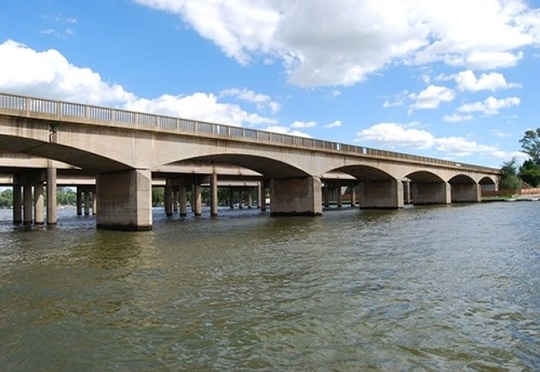The government of Senegal is looking to adopt a tax framework precisely in matters of exemption and temporary admission, including exemptions in terms of import duties and taxes only applicable for companies involved in the construction of Rosso Bridge in a bid to fast track the execution of the project.
The Rosso Bridge is being constructed on the border between Senegal and Mauritania to link the Rosso-Senegal municipality to its twin city Rosso-Mauritania which is separated by the Senegal River, and currently accessible only by ferry.
Partly funded by the African Development Bank and the governments of Senegal and Mauritania, the over US$ 97M project broke grounds in 2017 with a 40 months execution timeframe. The project entails the construction of the bridge and access viaducts with a total length of approximately 1461 meters on the Senegal River and the development of access roads over a distance of approximately 8 km.
The objective of the project
Also Read: Senegal relieves VAT charges on renewable energy equipment costs
The project’s overall objective is to contribute to strengthening cooperation and integration in the African region by reducing the missing links of the Trans-African Corridor No. 1 (Cairo-Dakar). In other words, on the one hand, the project should help support growth in the project area and the rapid evolution of commercial traffic between the two countries, while on the other hand, it will support trade growth between the North and West African countries.
More specifically, the project aims to improve border crossing conditions between Mauritania and Senegal reducing the crossing time from hypothetically 25 to 2 minutes, improve access to basic services and the living conditions of the populations residing in the project target area which is Trarza Region in Mauritania and the Saint-Louis Region in Senegal.
Upon completion in 2022, the future Rosso Bridge will have 2 lanes on one side and 1 lane on the other and an average daily traffic of 370 vehicles expected to shoot to 3,210 in 2048.

Leave a Reply